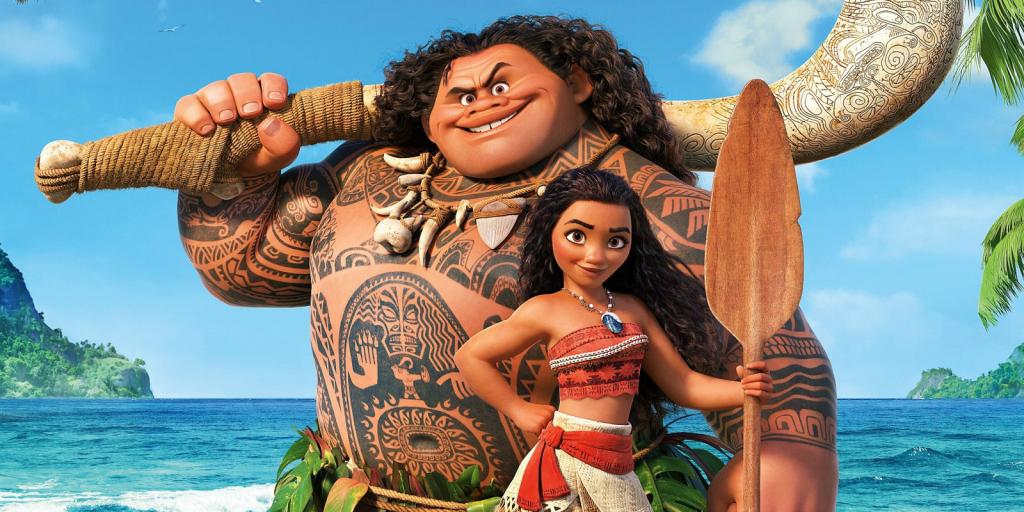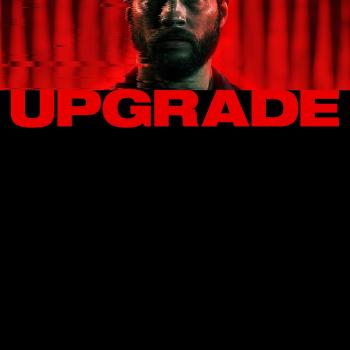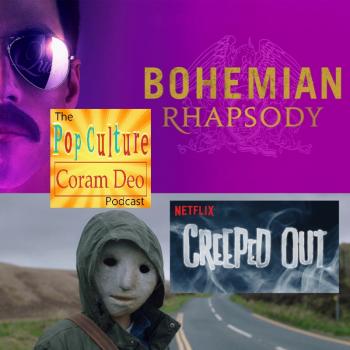
This piece is written as a companion to episode 7 of The Pop Culture Coram Deo Podcast and, like that episode, contains numerous spoilers. Subscribe (iTunes, Stitcher, acast, Player.FM). Read on at your own discretion. You can watch Moana on Amazon.
Disney At Its Best
If the scores on Rotten Tomatoes and Meta Critic are any indication the 2010’s have been a decade of good-but-not-great work from Walt Disney Animation Studios films. 2016’s Moana, if you go by those rankings, scores toward the top of Disney’s list of films but fails to enter into truly special territory.
Consider me disinclined to agree with the critical consensus. In fact, if buying stock in the lasting value of an animated film were a thing I would be buying stock like a time traveler in 1997 buying up Amazon stock.
The Biggest Questions of Life
Disney is never better than when dealing with the questions of universal experience and Moana hangs on two of the biggest: Who am I? and What should I do?
These questions aren’t unique to Moana in Disney’s filmography. However, the comparative health with which Moana answers those questions sets this film apart in quality.[1] Moana’s world is very, very good – it is beautiful in form and function. Her social dynamics appear ideal – people live together in social and vocational harmony. Human actions are meaningful and affect the lives of their neighbors. Thus Moana is a young woman torn between the wishes of her father to remain in her (apparently wonderful) community and the call of the sea. So much of the characterization of this film is found in the songs (again, standard procedure for Disney but still) and “How Far I’ll Go” holds the tension between her land-dwelling community and her need to explore at its heart:
I know everybody on this island / Seems so happy on this island / Everything is by design /I know everybody on this island / Has a role on this island / So maybe I can roll with mine
I can lead with pride / I can make us strong / I’ll be satisfied if I play along / But the voice inside sings a different song / What is wrong with me?
See the light as it shines on the sea? / It’s blinding / But no one knows / How deep it goes.
And it seems like it’s calling out to me / So come find me / And let me know / What’s beyond that line? /Will I cross that line?
For Moana this is legitimately a conflict, contrary to what we’ve seen in previous Disney films – say, for example, Pixar’s 2012 Brave where Merida rejects her mother’s leadership entirely and the film’s resolution comes when the mother leaves the castle to join Merida in what her mother previously considered unfitting pursuits. In Moana even the character most encouraging to Moana’s sense of a destiny on the ocean, Moana’s grandmother, affirms that Moana should honor her father’s wishes.
Almost Perfect
That isn’t to say that Moana is without significant weaknesses. Moana’s world is one subject to the competing whims of divine and semi-divine forces and their choices either bless or curse the humans who fill this world. These gods depend on humans to accomplish their will. Ta Fiti, the creator goddess is a poor, poore misrepresentation of the Creator. At the lowest narrative level, she is so is so unsovereign that she is subject to theft (and thus to having her will thwarted). More seriously, for all her apparent kindness, she is not very gracious. Maui must steal from her in order to give humans the ability to create; the Living God bids His creatures to create in His name for His glory and their good. Most troubling, Ta Fiti is subject to change, so much so that, having been stolen from, she experiences not only change but change into evil.
Conversation Starters for Families
Still Moana gives lots of opportunities for Christian families to magnify the glory of God. As we’ve mentioned, as lovely as Ta Fiti may appear, considering her weaknesses and potential for evil (what happens if someone steals her heart again?!?) parents have lots of room to help children that we live under the providence of The Living God rather than Ta Fiti. The character of Maui provides rich opportunity for conversation around the living room. Maui is a demi-god, half human and half divine. While Christian parents should have a working understanding of the doctrine of the hypostatic union it is likely sufficient for parents of younger children to ask if Jesus is half-god and half-human (having the children respond with a hearty “No!”) and explaining that, even though it is hard for us to understand, that Jesus was fully God and fully man. Similarly, Maui, for all the good he did for the people of Moana’s world, is a thief and a trickster. Jesus, in stark contrast, always loved to do what is right and hated to do what is wrong. Finally, while Maui wins by battling Ta Ka, Jesus wins by laying His life down before taking it up again.
An Individual Pursuing a Bright New Day Rooted in the Good of the Past
As the movie comes to an end we are treated with a vision of how a singular, courageous individual who has a vision both for a brave future and deeply held respect for the past – contrast, again, with Belle’s understanding of her “poor, provincial village” – can change her community for the better. I mentioned that the lyrics to the films (quite amazing, in my opinion at least) soundtrack carry so much of the narrative weight in Moana and the final song of the film “We Know the Way (Finale)”:
We set a course to find [Moana’s people, having now reclaimed their heritage of ocean explorers] / A brand new island everywhere we roam / We keep our island in our mind / And when it’s time to find home, we know the way
Not only does the song wrap up an excellent story quite perfectly it also resonates with the Christ-focused theme of history. Moana’s vision of a people, deeply rooted in their history, moving joyfully into the adventure of the future sounds so much like the church sent out to make disciples of all nations that one can’t help but think that Christians will be resonating with Moana until our particular chapter of history is brought to a close.
Jeff Wright pastors Midway Baptist Church in Cookeville, TN and a host of The Pop Culture Coram Deo Podcast. You can find him on Twitter @wrightjeff and his blog at jeffwright.exaltchrist.com
[1] For help on answering these questions I would recommend Kevin DeYoung’s Just Do Something: A Liberating Approach to Finding God’s Will or John MacArthur’s Found: God’s Will and Dick Keyes’ Beyond Identity: Finding Your Self in the Image and Character of God.












